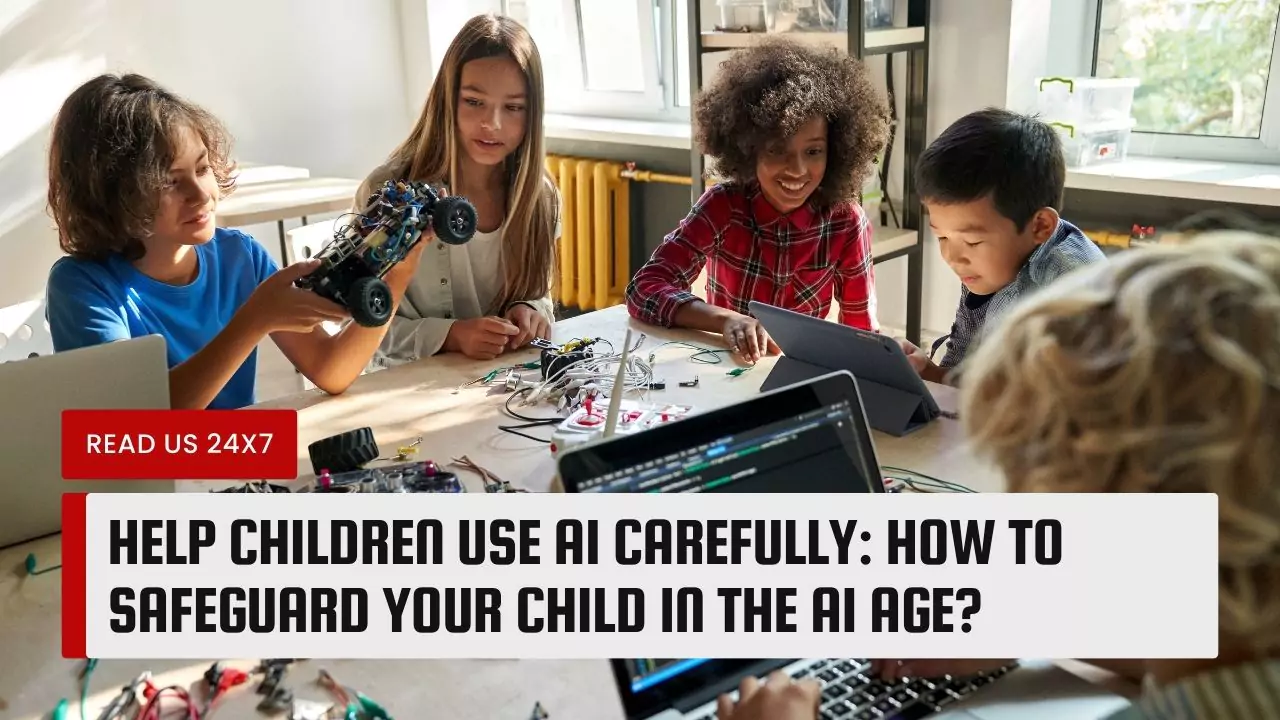Artificial intelligence (AI) is a powerful technology that can enhance our lives, but also pose significant challenges and risks. As children are increasingly exposed to AI in their daily lives, it is important to teach them how to use it responsibly and ethically. In this article, we will discuss why teaching children about AI is important, and provide some tips for parents and guardians to help their children use AI carefully.
Why Teaching Children About AI is Important?
AI is a broad term that refers to the ability of machines or software to perform tasks that normally require human intelligence, such as recognizing faces, understanding language, playing games, or making decisions. AI has many potential benefits for society, such as improving health care, education, transportation, entertainment, and more. However, AI also has potential risks, such as displacing jobs, invading privacy, creating bias, or causing harm.
Children are increasingly exposed to AI technology in their everyday lives, such as smart speakers, virtual assistants, social media, video games, online learning, and more. These technologies can provide children with opportunities to learn, play, communicate, and express themselves. However, they can also influence children’s behavior, preferences, emotions, and values. Therefore, it is essential to teach children how to use AI in a responsible and ethical way, and to help them develop critical thinking, creativity, and empathy skills.
Tips for Teaching Children to Use AI Responsibly
Teaching children about AI can be challenging, as it is a complex and evolving field that requires both technical and social understanding. However, there are some tips that can help parents and guardians introduce AI to their children and guide them to use it carefully:
- Start with small projects and discussions: You can use simple and fun activities, such as building robots, playing with AI toys, or exploring AI apps, to spark children’s curiosity and interest in AI. You can also use everyday examples, such as asking children how they think AI works in their favorite games or apps, or how AI helps them with their homework or chores.
- Keep up with education research for effective teaching methods: You can use online resources, such as [AI4K12], [AI Education], or [AI Family Challenge], to find age-appropriate and engaging AI lessons, activities, and projects for your children. You can also consult with teachers, educators, or experts on how to teach AI to children effectively and appropriately.
- Discuss the dangers and ethics of AI: You can use stories, movies, or news articles to raise children’s awareness of the potential risks and challenges of AI, such as cyberbullying, fake news, privacy breaches, or ethical dilemmas. You can also encourage children to think critically and creatively about the impact of AI on themselves, others, and the world, and to consider the values and principles that should guide AI development and use.
- Encourage monitoring of their own technology use: You can help children to keep track of how much time and energy they spend on AI technology, and how it affects their mood, health, and well-being. You can also help children to set goals and limits for their technology use, and to balance it with other activities, such as physical exercise, social interaction, or hobbies.
- Promote a balanced approach to technology and AI: You can help children to appreciate the benefits and opportunities of AI technology but also recognize its limitations and challenges. You can also help children to develop a positive and respectful attitude towards AI technology, but also to question and challenge it when necessary.
The Role of Parents and Guardians
Parents and guardians play a vital role in helping children to use AI carefully and responsibly. Here are some ways that parents and guardians can support their children’s AI education and use:
- Monitoring children’s technology use: You can use parental controls, filters, or apps to limit or block children’s access to inappropriate or harmful AI technology, such as violent, sexual, or addictive content. You can also check children’s online activity, such as browsing history, messages, or posts, to ensure their safety and security.
- Importance of open communication and setting boundaries: You can talk to your children openly and honestly about AI technology, and listen to their opinions, questions, and concerns. You can also establish clear and consistent rules and expectations for your children’s technology use, and explain the reasons and consequences of them.
- Teaching children to be cautious and critical of AI: You can teach your children to be careful and vigilant when using AI technology and to protect their personal information, privacy, and identity. You can also teach your children to be skeptical and analytical of AI technology and to verify the accuracy, reliability, and credibility of the information, content, or services they encounter.


